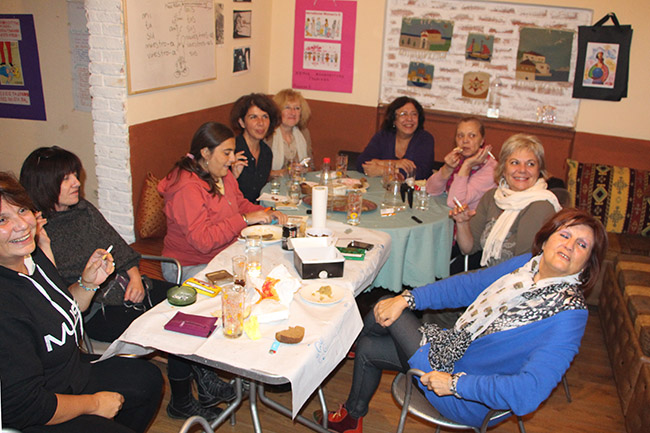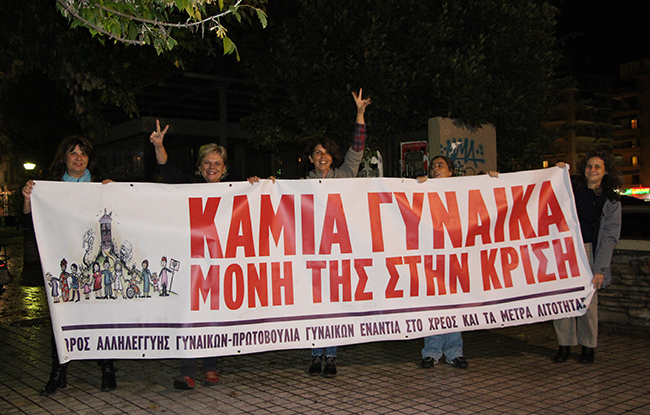
A meeting at the Women’s Solidarity House
In Greece, in July 2015 the third memorandum imposed on its leftist government, elected in January 2015, has precipitated its dissolution. This change of government was also perceived as capitulating. The measures are now being implemented, devaluating pensions, especially the lowest, and dispossessing the country of its assets.
After having opened public spaces and institutions to the wrath of the private market, the Troika and especially the IMF has succeeded in conveying the message that the “very generous” pensions of the Greek people must be reduced drastically to “save” the Greek’s economy. It is worth noting that beside unsustainable cycles of austerity measures producing higher unemployment and pension reduction, 45% of the pensioners live under the poverty line.
We met Areti Karatasiou at the Women’s Solidarity House in Thessaloniki, commonly referred to as “the venue.”
As a teacher in the public school system, she knows the meaning of the Troika/IMF’s discourse: it demands people to work longer time in order to collect retirement, while many are being laid off or forced to retirement. This seems contradictory, but it is not. The result is well known: increased precariousness for a majority of people while reducing the social fabric of the society and its safety net to its bare minimum. It’s a clear example of necropolitics.
Areti mentions that the pension she receives amounts, at the moment, to only 700 Euros (about $700), after 30 years of teaching and contributing to the social safety net.
For many women like Areti in Thessaloniki it is a struggle to keep decent conditions of life. Areti explains here what it means to be part of the Women’s Solidarity House.

No women alone during the crisis!
(Photo Credits: Marie-Hélène Le Ny)